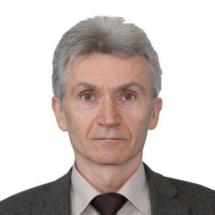
Prof. Andrej Trkov
International Atomic Energy Agency, Vienna
Reactor calculations are frequently done in the diffusion approximation, which requires effective cross section homogenised over specific energy regions (nodes), where the energy-dependence of the cross sections is represented in just a few energy groups. Node cross sections are typically obtained from multi-group transport calculations over nodes. Input data for such calculations are obtained by processing evaluated data files, which contain full details of the nuclear properties of atomic nuclei. Some Monte Carlo transport codes can make use of such information directly, usually by re-formatting the evaluated data files. Still, there is a long way from experimentally measured data and the data in evaluated data files. The task of an evaluator is to assess the most probable value of a parameter (e.g. a cross section) at any energy by suitably averaging experimental data, identifying and eliminating discrepant data and providing values in energy ranges or for nuclides for which experimental data are missing. Considering the complexity of the data, this is not a trivial task.
The Working Party on Evaluation Cooperation of the OECD set up a subgroup WPEC-SG40 (alias CIELO) to focus on the evaluated nuclear data of the major nuclides in reactor technology, namely 1H, 16O, 56Fe, 235U, 238U and 239Pu. Different research groups in various parts of the world were working on improved evaluated nuclear data and their uncertainties for these nuclides; the ultimate test of improvement is the performance of the data in simulating integral experiments.
The Pilot project CIELO is almost completed. New evaluations that were co-ordinated through the IAEA as one of the participants in the project were produced and are available from the IAEA-CIELO web page https://www-nds.iaea.org/CIELO/. They were extensively tested against criticality benchmarks from the Handbook of International Criticality Safety Benchmark Experiments Project (ICSBEP). They show significant improvement in performance compared to the previous evaluated data libraries. The key principle followed in the evaluation process was to respect the available differential data and use integral benchmarks as guidance in assigning preferences in the case of discrepant differential data, or to make adjustments to quantities with large uncertainties. The new evaluations for Standards_2017 were also fully respected.
The IAEA-CIELO evaluations were adopted for the new ENDF/B-VIII library, which is scheduled for release in 2018. We are looking forward to receiving feedback from general users on the overall performance of the new library.
Dr Andrej Trkov obtained his M.Sc. in Applied Mathematics from Reading University, U.K and his B.Sc. Nuclear Engineering, Queen Mary College, University of London, U.K. He is Ph.D. in Reactor Physics at University of Maribor, Slovenia Department of Mechanical Engineering.
Presently Dr Andrej Trkov is Nuclear Physicist in the Department of Nuclear Data of the International Atomic Energy Agency, Vienna. He is also Associate Professor at the University of Ljubljana, teaching at the Faculty of Mathematics and Physics at the University of Ljubljana and at the Faculty of Power Engineering of the University of Maribor.
The main areas of research are reactor calculations (including software development for nuclear core design calculations of light-water reactors), nuclear data evaluation and validation, preparation of application libraries from evaluated nuclear data files, management and coordination of international projects in the field of nuclear data. Dr Andrej Trkov important scientific contribution is resumed in more than 180 peer reviewed publications, cited by more than 2000 researchers and worldwide users.

